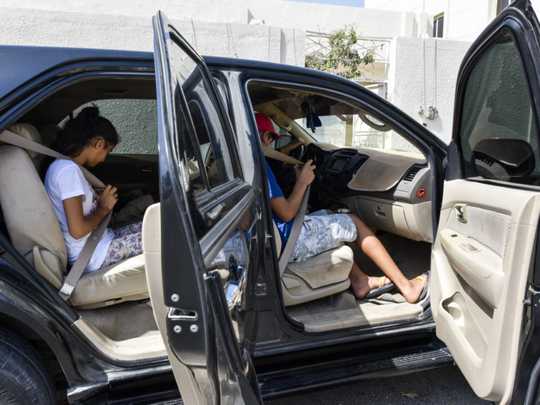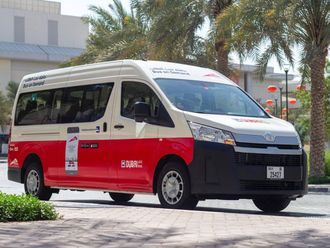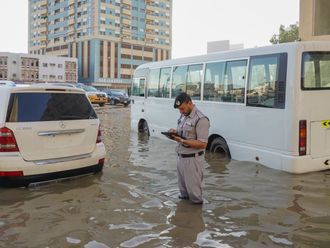
Dubai: Drivers and passengers who do not buckle up after the stiffer seat belt law introduced on July 1 will likely be issued a warning first, says a top officer, followed by a fine of Dh400 for a second and repeated stops by police.
Seat belt rule leaves cabbies confused
In addition, seat belt fines for backseat passengers must also be issued in person by an actual police officer, not by electronic roadside radars, said Major-General Mohammad Saif Al Zafein, Assistant Commander-in Chief for Operational Affairs at Dubai Police and Director of the Federal Traffic Council.
Maj-Gen Al Zafein made the comments on Wednesday in the wake of the tougher new traffic law that came into effect on July 1 to tackle unsafe driving behaviour on the country’s roadways.
Taxi commuters confused about new child seat law
Sales of car child seats rise across UAE
“We want people to follow traffic instructions, not to collect more amount of money. As the new traffic law is now live, our police officers will first warn the passengers who are not wearing seat belts in the backseat before issuing a fine. The fine must be in the presence of a policeman, not in absentia,” Maj-Gen Al Zafein clarified.
Complete guide to child safety car seats in the UAE
He said police officers will warn backseat passengers first and if the passenger refuses to fasten the seat belt, the driver will be issued a ticket.
“Drivers are responsible for their passengers, they need to ask them to wear seat belts or the driver will be fined. The driver is the captain of the vehicle and he is responsible for making the passengers also follow traffic instructions — not only him,” he said.
The first three days after the new traffic law was activated on July 1, police issued nine fines for passengers not wearing seat belts in the backseat.
According to Maj-Gen Al Zafein, officers on patrol will be lenient when there are three passengers riding in the backseat if the car only has two seat belts.
Many people, he said, are still not aware that they need to wear a seat belt in the backseat but in the future, awareness will grow boosting compliance with the law.
The situation completely changes under the new law for drivers and passengers riding in the front seats of vehicles.
Roadside radars can capture and fine front-seat violators who disobey the seat belt rule.
Police officers do not need to be on the scene to issue tickets for front-seat violations, Maj-Gen Al Zafein.
The fine is Dh400 and four traffic points.
“In the UAE, 70 per cent of people ride in the front seat wearing seat belts. With the new traffic law, we expect the rate will be 100 per cent. The new law is a right step in the right direction,” Maj-Gen Al Zafein said. “People are still in denial [mode] and they are not sure whether they need to wear seat belts in the backseat or not, but when a policeman stops you for not wearing a seat belt in the backseat, then you will do it in the future and I’m sure in two years’ time, people who have got tickets will wear seat belts in the backseat,” he added.
Dubai Police issued 190 fines to drivers and front-seat passengers for not wearing seat belts in the first three days after the new traffic law came into effect.
When Gulf News asked Maj-Gen Al Zafein about wearing seat belts in buses, he said that it is tricky because buses don’t have seat belts.
“How can I fine people in buses for not wearing seat belts if buses don’t have seat belts,” he said.
Colonel Jamal Al Bannai, Deputy Director of Traffic Department at Dubai Police, told Gulf News that officers will be lenient with child seat fines also.
“Drivers won’t be fined in case he has many children and not enough child seats. The fine for not seating a child in a child seat is Dh400.”
However, he urged parents to be “more careful for their children and provide child seats for their own safety”.












